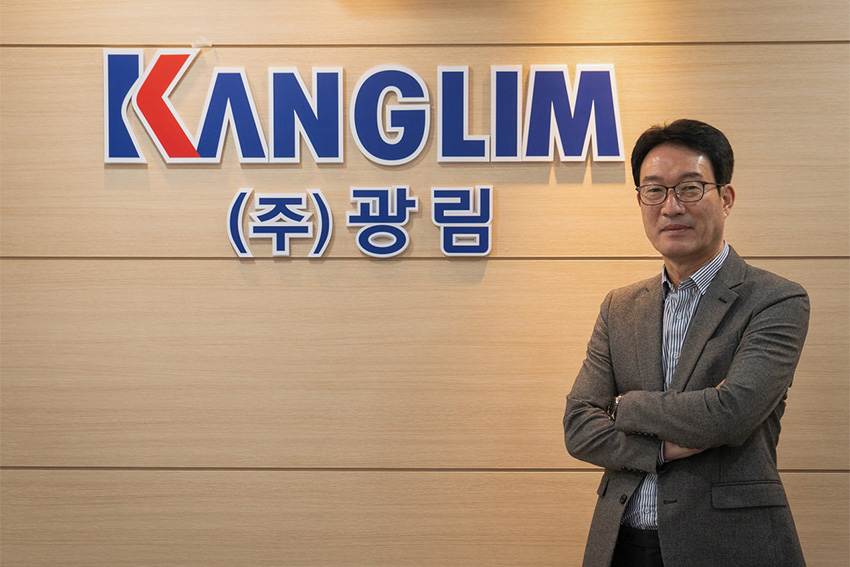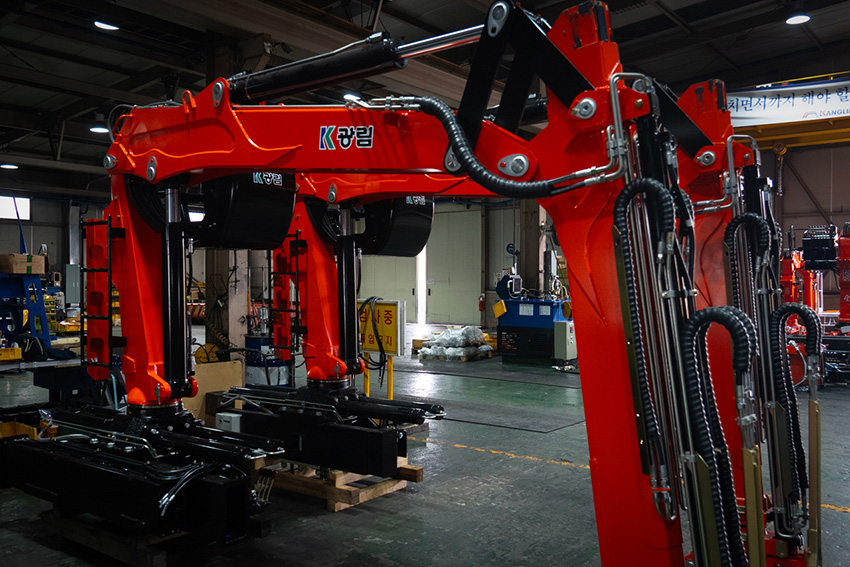In an industry dominated by conglomerate giants, Kanglim has set itself apart with competitively priced, high-quality cranes and slashes lead times through expert management.

By Daniel De Bomford
With a downturn in the profitability of South Korean construction projects as a result of increasing costs, many companies have looked abroad to find success leading to 2024 being the 5th consecutive year for which overseas construction orders exceeded $30 billion USD. Likewise, suppliers to the construction industry have been impacted by the downturn, but crane supplier Kanglim has seized the opportunity to become a leader in crane exports.
Kanglim CEO Tae-Young Song says that a sales plateau in the small Korean market cast their eyes abroad. “That prompted us to look abroad, leading to exports now comprising over 40% of our revenue,” he says. Perhaps more impressively, Kanglim has remained independent, investing in their own technology and declining subcontracting offers. “Though this path presented many challenges, it has significantly enhanced Kanglim’s corporate value,” Mr. Song explains, and he believes its value now surpasses their conglomerate-backed competitors.
 Kanglim’s Knuckle boom crane
Kanglim’s Knuckle boom crane
One of Kanglim’s key products, the knuckle crane, excels at clearing debris and facilitating reconstruction. With global investment in development continuing to increase and ongoing conflicts, Kanglim is ready to quickly supply cranes and equipment to expedite development and rebuilding efforts. Mr. Song says their quick turn around time to supply orders lends them a significant advantage over competitors. “The key lies in our preparedness. We maintain an inventory of essential materials and parts, allowing us to assemble orders quickly.” Competitors often source materials after they have been placed, which can take upwards of five months to fill an order. “Once an order is placed, we can deliver and ship within two to three months,” Mr. Song explains.
Speaking on the future, Mr. Song describes their bold plan to reach 250 billion won by 2030, “we are targeting aggressive expansion into international markets, focusing on Russia, Southeast Asia, the CIS, and the Middle East.”
Discover the article on Newsweek.com/Kanglim
0 COMMENTS